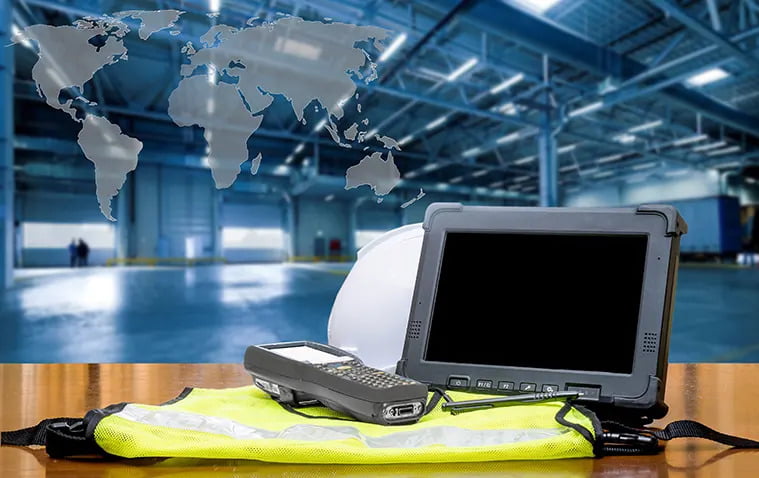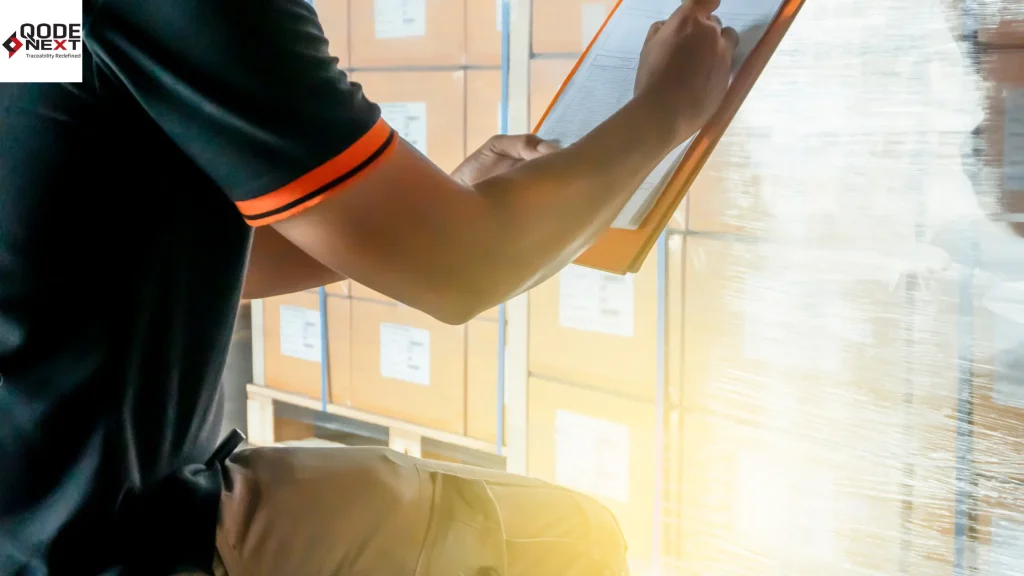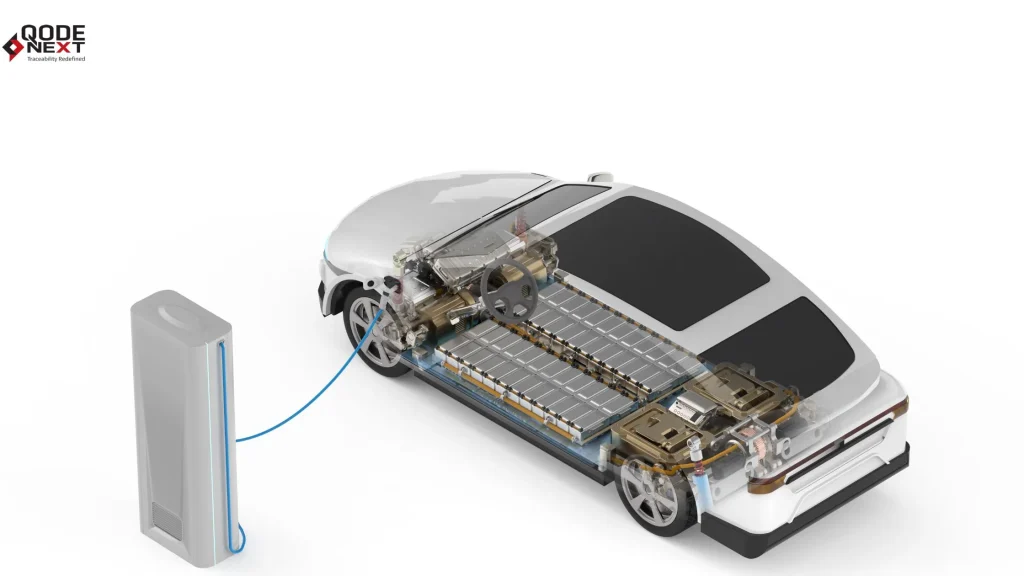Deloitte Manufacturer’s Alliance for Production and Innovation (MAPI) mentioned in their recent survey that 12% of manufacturers who invested in smart factories, witnessed an increase in labour productivity, and 10% noticed an increase in total production output.
Smart manufacturing units with automation initiatives are an amalgamation of disruptive technologies that associate the digital and physical aspects of manufacturing companies. A smart ecosystem is an integration of Operation Technology (OT) and Information Technology (IT) with increased end-to-end connectivity across the value chain.
As the global digital marketplace is evolving, digital elements in manufacturing are all set to drive India’s GDP in the new decade. To be a part of initiatives like ‘Digital India’ and ‘Make in India,’ companies are upskilling their existing employees and nurturing aspirants to adopt relevant technologies. They are also incorporating technology in the manufacturing and supply chain to increase efficiency and productivity. The COVID-19 pandemic and remote working conditions flared up the acceptance of the smart ecosystems in all sectors, including manufacturing.
One of the most adopted modern technologies in manufacturing companies is a rugged tablet. India is one of the leading countries in the Asia-Pacific region to incorporate rugged tablets across different industry verticals like construction, public safety, retail, manufacturing, medical, government, transportation, distribution, and more.

What is a Rugged Tablet?
A rugged tablet is an industry-grade smart device in the form of a tablet that meets certain extreme requirements in terms of harsh environment and temperature conditions. They function like a regular consumer-grade device running on any operating system like Android, Windows, etc. But their rugged shell is designed to withstand weather extremities, moisture, drops, jolts, vibrations and other situations that can come up in an industrial setting.
Taking the design technology a notch ahead, rugged tablets now have fan-less cooling technology that is completely sealed to offer more protection against physical damage. A unique feature of rugged tablets is that they also have additional industrial sensors like barcode scanners and RFID readers to suit various commercial operations.
How Is a Rugged Tablet Different from a Consumer Tablet?
Despite the operational similarities between consumer-grade tablets and rugged tablets, they are built to carry out very diverse activities, and rightfully so, have several differences.
Many manufacturers believe that instead of investing in a good quality rugged tablet, they can work with a consumer-grade tablet by putting on a hard-shell case. But is it an interchangeable and viable alternative? No.
Let’s see why.
- Consumer-grade tablets are equipped to run consumer-scale applications, whereas rugged tablets have various operational utilities, requiring them to run many applications at once.
- Even if manufacturers invest in top-of-the-line consumer-grade tablets, they cannot duplicate the internals of a rugged tablet. A rugged tablet is fully waterproof, and its external connectors are sealed with elastomers and adhesives.
- Due to its fan-less architecture, there are no vents to allow dust, dirt, and moisture to seep in and damage the internals.
- The motherboard is generally reinforced around key components of the tablet, like the memory chip, CPU, and radios.
- Rugged tablets also have better data and security protection with fingerprint sensors, facial recognition, and a Common Access Card (CAC) reader for better user account management.
- With no moving parts inside the body, rugged tablets sustain greater damage caused due to intensive movement or impact. These hard-shell tablets are built to last in extreme environments over wide operating temperatures.
- Rugged tablets also come with industry-grade sensors like barcode scanners and RFID scanners for ease of accessibility.
- There are integrated docking and mounting connectors for stable operations.
- Rugged tablets also have a brighter screen for better visibility even under harsh sunlight and often come with true daylight readable displays.
- The battery life of rugged tablets is greater than consumer-grade devices, as they promise unlimited connectivity at work units, sufficing heavy usage throughout the day.
- Most rugged tablets also come with extra battery packs and charger packs, along with a battery swap facility, to meet all kinds of demands.
- While consumer-grade tablets are designed as transactional devices, rugged tablets can command, monitor, and control all operations within manufacturing facilities.
With such great advantages over consumer-grade tablets, the ROI on a rugged tablet is far greater.
Power Up Industry 4.0 Initiatives with Rugged Tablets
With Industry 4.0 becoming a priority for manufacturing companies, rugged tablets can give robust support to those initiatives with their special features like damage-resistant screens, shock resistance, waterproofing, and non-movable components like SSD.
Industry 4.0 revolutionises the way companies manufacture, distribute, and ideate products and companies can greatly benefit from the adoption of rugged tablets across their operations. These devices can integrate modern technologies like the Internet of Things (IoT), automation, cloud computing, machine learning, AI, and analytics across the manufacturing and production units.
The major benefits of having a rugged tablet in the manufacturing process are:
- High performance and better mobility: Rugged tablets are rapidly replacing laptops and smartphones due to their easy mobility and high performance. They come in a compact size with industry-grade processes that can manage several advanced tools for warehouse management and logistics at the same time. Employees can carry these devices away from their desks, even in extreme industrial conditions, and avail of high-end performance.
- Durability: The most marketed aspect of a pocket tablet is its durability. Manufacturing facilities of different products have separate environments that can sometimes push to the extremes. Rugged tablets are made to sustain such severe situations – be it extreme temperature or geographical environment. They are also carefully protected against water damage, dust and dirt damage, and minor falls. These devices are built to last longer.
- Affordability and great ROI: Investing in rugged tablets for manufacturing facilities can be a big expense, but keeping the ROI in mind, the initial cost seems affordable. Rugged tablets barely have any maintenance cost and can sustain few damages and breakages. Mostly, the repair and support charges are also minimal. Moreover, they can help reduce downtime across the facility, boosting revenue greatly.
- Practical industry-grade features: Designed for manufacturing companies and enterprises, rugged tablets come packed with practical features like barcode scanners, ergonomic mounts, straps, biometric systems, etc. They offer seamless connectivity over Wi-Fi and cellular data with support for great operating systems like Windows, Android, and others. These operating systems have millions of applications in their store to make the workflow smoother.
- Connection modules: One great benefit that rugged tablets enjoy over laptops or PCs is the 3G and 4G connection module. Sometimes, the Wi-Fi at a manufacturing facility can be down, but that does not hinder connectivity with rugged tablets. They come with 3G and 4G connectivity for easy collaboration and sharing, GPS tracking while on the go, and continuous access to emails, websites, and POS systems.
- Temperature resistance: Rugged tablets are designed to withstand extreme climatic conditions, whether they are operated in hot warehouses or cold freezers.
- Employee productivity: When any device in the manufacturing facility breaks down, productivity downtime is inevitable. Rugged tablets reduce the chance of breakdown in the manufacturing facility, thus enabling the employee workforce to stay agile and more productive.
While these are some of the most significant benefits of using rugged tablets in manufacturing, companies can find several other benefits as per their requirements. Some tablets focus on dust and water resistance, while some have great drop spec or endurance to extreme temperatures. Based on the nature of the manufacturing facility, companies can pick their rugged tablets with specific benefits.
The Many Uses of Rugged Tablets in Manufacturing
There are various ways in which companies can use rugged tablets in a manufacturing setup. Here are some common and productive use cases of rugged tablets in the manufacturing setup:
- Plant floor capabilities: Manufacturing companies are constantly looking for ways to increase their production capabilities. Business owners are constantly working towards making their plant floor smarter and more agile to drive better action and performance. With rugged tablets, they can use connected intelligence to monitor real-time data that leads to faster, better actions, and reliable results. Manufacturers can rely on rugged tablets from experienced companies like Zebra to help them. With data capture and predictive analytics, manufacturing companies can unite processes, coordinate intelligence, and reduce cycle times across the plant floor. Rugged tablets offer connectivity and real-time updates for quick decision-making and taking informed actions while achieving regulatory compliance.
- Trace and track: Even in small manufacturing facilities, tracing specific products can be a huge challenge. With sensors and scanning technology of the rugged tablets, it’s easier to maintain a record of every product as it moves across the manufacturing facility. Most tablets have industrial scanners and smart cameras that can conduct complex inspection checks and optimise production by streamlining the process. For example, Ford Motors has implemented Zebra technology to track and locate specific vehicle parts across their facility. By developing clear visibility between plants, manufacturing companies can use rugged tablets to track every asset in near-real-time and improve utilisation.
- Asset and facility management: Asset and facility management is vital for the production process in a manufacturing unit. With rugged tablets, companies can increase their operational flexibility by creating a well-connected plant floor. Proper asset and facility management also optimises maintenance and keeps downtown from bringing production to halt. The rugged tablets can help reduce cycle time, improve device and equipment management, and increase visibility across facilities.
- Quality assurance: Maintaining and assuring quality during assembly and after manufacturing, is of utmost importance for manufacturing companies. With rugged tablets, they can optimise every process and asset to enhance end-to-end accuracy. The sensors, readers, and scanners on the rugged tablets can help detect and eliminate quality issues before they transform into greater problems. By ensuring excellence through a smart manufacturing process, companies can achieve more and improve their production quality.
- Inbound processing: In every manufacturing facility, the raw materials need to be checked for quality, accuracy, and adherence to specific requirements. Workers can quickly process the inbound components and materials with the help of rugged tablets, and determine if the stock is as per order, delivered within the stipulated time.
- Maintenance: Rugged tablets can be used for proactive maintenance with better visibility across the plant floor machinery. Proper maintenance also helps reduce downtime by identifying machinery that requires replacement or servicing. By eliminating failure points, the manufacturing site can reduce expenditure and increase quality.
- Safety audits and compliance reporting: All companies need to adhere to certain compliances and generate compliance reports. A rugged tablet can streamline this process with the required applications to conduct safety audits and generate compliance reports. It reduces the risk of manual error and intensive paperwork, as the entire process is based on collected data and images.
The Internet of Things (IoT) thrives on data and sensor information that most of the rugged tablets are equipped to record. They offer end-to-end solutions for manufacturing companies to realise their transformation to Industry 4.0 with modern technological integration.
How to Select a Rugged Tablet?
There are plenty of rugged tablets available in the market. But manufacturing companies need to select the ones that match their specific needs. Portability and toughness are the most sought-after features, but there are several other considerations too.
Here is what companies should look for in the best rugged tablets:
- Screen: The rugged tablet screen size, resolution, and brightness matter. The screen size ranges from 7-12 inches. Choose durable screens made from Corning Gorilla glass or equivalent that can offer good nits of brightness and weather seal ratings.
- I/O ports: While most rugged tablets come with only one input port, they should have support for multiport, as various applications may require certain specific I/O ports.
- Rugged build quality: A tough exterior is inherent to the rugged tablets. They are durable and resistant to shock and motion injury. Companies should thoroughly check the packaging specifications according to their facility environment before investing in a rugged tablet.
- Drop spec: The maximum height from which a device can be dropped without sustaining any damage is the drop spec. Ideally, a rugged tablet should endure a drop from 3-6 inches of height on a concrete floor.
- Sealing rating: Devices that can endure water and dust exposure to a certain extent, come with an IP rating. For better protection against water, choose the higher IP ranking. A rating of IP5X or IP6X ensures the device’s protection against hazardous dust. A device with IP7X and IPX8 ratings will continue working even when it is submerged in water.
- Data capture and connectivity: Rugged tablets have every functionality captured within a compact body. High-quality rugged tablets can improve data capture functionality by connecting to tools like a receipt printer, RFID support, barcode scanner, card reader, GPS tracker, external storage, etc.
- Operating system: Most rugged tablets come with either Windows or Android support. Companies should check for compatibility of these operating systems with the applications they require in the manufacturing facility.
- Maintenance services: Check for better maintenance terms against manufacturing defects and other damages. Most companies offer extended warranty plans to cover the device after one year of purchase.
- Battery: To get an entire day’s productivity from a rugged tablet, it should have a good battery backup.
- Camera system: A decent camera system can help incorporate facilities like scanners and facial recognition to enhance the performance of rugged tablets.
- Security measures: To keep data secure in a rugged tablet, it should have a good security system and biometrics lock.
The Role of Security and Compliance in Rugged Tablets
Manufacturing industries often deal with sensitive data and sharing information digitally without proper security compliances can be a major threat to any organisation. Thus, maintaining the security of data and compliance through rugged tablets is vital for manufacturing companies to power up their automation initiatives.
Here are some of the top security and compliance considerations on rugged devices:
- Biometric systems: One of the most common security features is biometric identification. From facial recognition to iris and fingerprint scanners, biometric identification is highly authentic and accurate, bringing extraordinary security value to rugged tablets.
- Lock slots: Guarding the rugged tablets against data or device theft is incredibly important. While portability is a great benefit of rugged tablets, it also makes the device susceptible to theft or malicious attack. Lock slots can help reduce the risk of data theft in case of misplacement.
- CAC readers: Rugged tablets with built-in CAC readers can make personal identification easier by offering physical access to protected and controlled spaces. These readers make rugged tablets secure and give complete control to the admin to allow or forfeit access from individuals.
- Access control: Manufacturing companies may have common rugged tablets across departments and position holders. With a strong access control mechanism, only authorised individuals can access the tablet and the information on it. Moreover, multi factor authentication can increase the security parameters from possible threats.
- TPM processors: TPM processors integrated into rugged tablets are highly appreciated by industry standards. They secure the tablet hardware by integrating cryptographic keys and making the device more secure. By increasing physical security, the rugged tablets become less prone to malicious activities.
- Software and security patch updates: Every operating system offers regular software updates and security patch updates to keep the device in line with the changing technology. Keeping the device up to date can increase its life, minimise downtime, and allow the organisation to operate, without any risk of a security breach.
- Industry-specific compliance: Every industry has several regulatory compliances for data security and rugged tablets should adhere to them. While getting a rugged tablet, it is necessary to check for industry-specific compliance.
- Built-in intelligence: Rugged tablets should have built-in intelligence to scan and check device health and security. With real-time updates on security compliances, companies can tighten the safety when required, and increase productivity. This also makes the device more reliable.
To keep your operations secure, manufacturing companies should pick rugged tablets that match these security standards and compliances. Features like TPM processors and CAC readers can elevate the standard of the digital ecosystem, striking the perfect balance between utility and security.
Conclusion
According to the “Accelerating Smart Manufacturing: The Value of an Ecosystem Approach” report by Deloitte and the Manufacturers Alliance for Productivity and Innovation (MAPI), the global smart manufacturing initiatives have greatly been impacted by COVID-19. 80% of the surveyed manufacturers agree that companies need to implement methods of streamlining communication with partners, vendors, and other companies to fully realise their smart manufacturing goals. With such reports and findings, it is not an exaggeration to say that rugged tablets, as means of operational and communication devices, are devising the future of the manufacturing industry.
By incorporating a smart device that can sustain itself through extremities, Indian manufacturing companies can take their next step towards creating a highly-functional, secure, and productive digital workspace. This can further facilitate the automation initiatives, incorporation of robotics and sensors, reduction in human intervention, and subsequent decrease in human errors. With rugged tablets, manufacturing companies can also monitor industrial processes in real-time to prevent downtime, notice and rectify the red flags, and boost productivity in the industrial sector.
The time to adopt top-notch rugged tablets is now!
About QodeNext
QodeNext is a leading supply chain traceability technology, consulting and service company. We provide a single point of contact for all your traceability needs from technical consulting to implementation to support. We harness the power of Barcode, RFID, Vision, Cognitive Computing, IoT, Predictive Analysis and emerging technologies to enable our clients to integrate their supply chains and facilitate end-to-end visibility and connectivity.
We create significant differentiation with the ability to address new customer demands with an unprecedented solution breadth, specialised domain expertise and expansive support network. We are the largest Automatic Data Information Capture Solutions provider in India, with a dedicated team of over 200 employees.
References
https://market.us/report/rugged-tablet-market/
Rugged Tablet Market: Global Industry Analysis and Forecast( 2025 – 2032)
https://www.fortunebusinessinsights.com/industry-reports/rugged-tablet-market-100168/
https://www.marketdataforecast.com/market-reports/tablet-pc-market/






